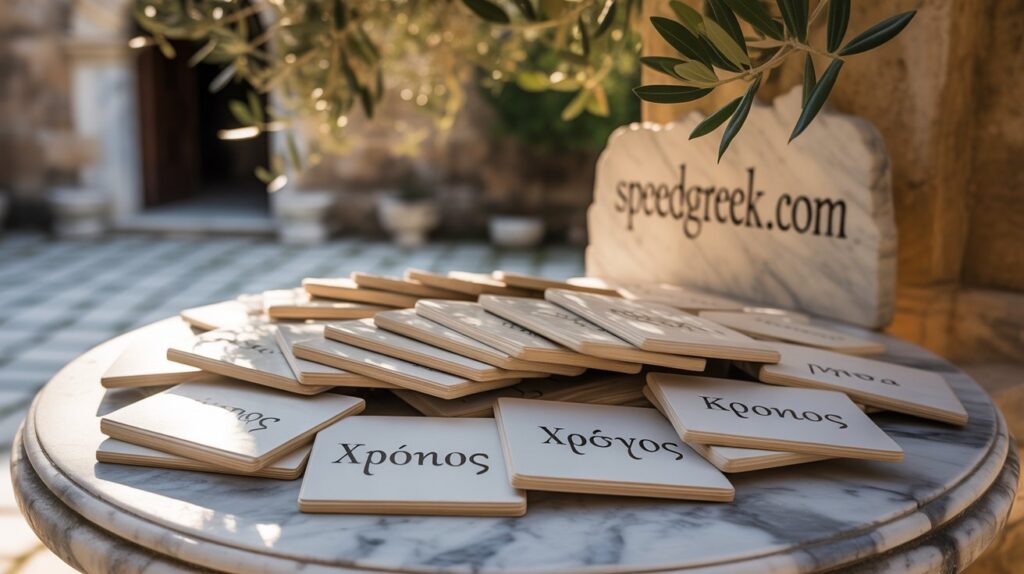Some students have counterproductive habits from past language courses. In this post I want to share the most common flashcard mistake: Don’t mindlessly cycle through all the flashcards over and over again. Doing that takes you away from the mnemonic system, and back into boring rote memorization.
Test with Flashcards, Learn with Mnemonics
Here’s the right way to use flashcards to learn Biblical Greek:
- Try to review the next day. Not the same day, and not one week later. In my experience with Chinese and Greek, I’ve found that reviewing one day later is optimal. So if I read or listened to the first 20 mnemonic stories on Monday, I will review those 20 flashcards on Tuesday. If I stretched myself to do 102 stories on Monday, I will review all 102 flashcards on Tuesday.
- Shuffle the flashcards, and then show yourself the English side. Push yourself to remember the Greek. This will easily cut your review time in half, because training in this way makes it trivial to go from Greek to English and even from Greek to direct intuitive meaning. You will soon be reading or listening to the New Testament in Greek, without even needing to translate it into English. Be disciplined in forcing yourself to do flashcard review the hard way, and you will soon reap the benefits of thinking in Greek.
- As you go through the flashcards, make two piles. One pile contains all the Greek words that you were able to spell or pronounce perfectly. In the other pile, put all the words that weren’t perfect, even if they just involved a small mistake.
- Take the pile which wasn’t perfect, and go back to the audio files or the PDF to review those stories. Spelling errors mean that one element, for example a tricky omega in the middle of a word, was out of place. Envision the story again, and pay special attention to the mnemonic for that missing piece, making that part extra vivid in your imagination.
- If you couldn’t recall a word at all, sit with the mnemonic story longer. Relax and allow the story elements to settle into your mind however they want. Everyone has different experiences, emotions, and perspectives. It’s possible that one or more of my stories just doesn’t resonate with you, and that’s fine. In those cases, give yourself some time to construct a unique mnemonic that is memorable to you.
Just follow this process and you will learn the Greek vocabulary 5, 10, even 20x faster than someone who mindlessly flips through a flashcard deck. Remember: test with flashcards, but learn (memorize) with mnemonics.
